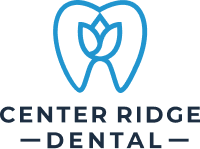Blog
How to Know if My Toothache is Serious?

Where Smiles Begin!
Comprehensive dental care for the whole family


Toothaches are a common dental problem that affects both adults and children. They can range from mild discomfort to excruciating pain, and understanding their severity allows you to take the best course of action. If you or your child experiences a toothache that is persistent, severe, or accompanied by other concerning symptoms, don’t hesitate to contact a dentist.
What is a Toothache?
A toothache is a distressing sensation originating from the teeth or their surrounding structures, such as the gums and jawbone. It’s often characterized by discomfort, pain, or sensitivity ranging from mild to severe. The discomfort may manifest as a dull ache, sharp pain, or throbbing sensation, and it can be exacerbated by chewing hot or cold temperatures or even pressure on the affected tooth.
Stages of a Toothache
Understanding the stages of a toothache is essential for recognizing the progression and the importance of early detection. At the initial stage, a toothache may present as minor discomfort or sensitivity. It might come and go, and you may not pay much attention to it. If left unaddressed, the discomfort can progress to become more persistent. You may notice it during meals or when consuming hot or cold foods and drinks. As the condition worsens, intermittent pain may occur. This stage often prompts individuals to seek over-the-counter pain relief. In advanced cases, the toothache may evolve into constant, severe pain that significantly disrupts your daily life. This is a critical stage that necessitates immediate attention.
Common Symptoms of a Toothache
Toothaches can manifest in various ways, and recognizing the common symptoms associated with toothaches allows you to take the best course of action.
- Pain or Discomfort: The most obvious symptom of a toothache is pain or discomfort in or around the affected tooth. This pain can range from mild to severe and may be constant or intermittent.
- Sensitivity to Temperature: Tooth sensitivity, particularly to hot or cold temperatures, is a common symptom. You may experience a sharp, shooting pain when consuming hot coffee or cold ice cream. Oftentimes, the pain lasts several minutes after the hot or cold stimulus has been taken away.
- Pain While Chewing: If you feel pain or discomfort while chewing or biting down, it may indicate a dental issue. This pain can be localized to a specific tooth or area.
- Swelling and Inflammation: Sometimes, a toothache may be accompanied by swelling or inflammation around the affected tooth or in the nearby gums. This can cause tenderness and redness.
- Bad Taste or Odor: An unpleasant taste or odor in your mouth, particularly around a specific tooth, can indicate infection or decay.
- Headaches: Persistent toothaches can trigger tension headaches or migraines, impacting your overall well-being.
Factors That Can Cause Toothaches
Toothaches can arise from various factors and dental issues, and understanding the underlying causes is essential for addressing the source of the pain.
- Dental Decay (Cavities): Dental decay, commonly known as cavities, is one of the most frequent causes of toothaches. When bacteria in the mouth produce acids that erode the tooth enamel, it can result in sensitivity and pain.
- Gum Disease (Gingivitis or Periodontitis): Gum disease can cause gum inflammation and recession, exposing sensitive tooth roots. This can lead to tooth sensitivity and discomfort.
- Dental Infections: Infections within the tooth or in the surrounding gum tissue can lead to severe toothaches. These infections often require prompt treatment, such as root canal therapy or antibiotics.
- Tooth Fractures or Cracks: A cracked or fractured tooth can cause sharp pain, especially when chewing or biting. The extent of the fracture determines the severity of the pain.
- Impacted Wisdom Teeth: Wisdom teeth that do not have enough space to emerge properly can become impacted, leading to pain and discomfort. Extraction may be necessary.
- Teeth Grinding (Bruxism): Grinding or clenching your teeth, often involuntarily during sleep, can result in toothaches, jaw pain, and headaches.
- Trauma or Injury: Accidents or injuries that affect the teeth, such as a fall or impact, can lead to immediate toothaches or delayed pain.
Treatment Options for Toothaches
Dealing with a toothache can be uncomfortable and distressing, but there are various treatment options available to help alleviate the pain and address the underlying causes.
Home Remedies
Rinse with Warm Saltwater: Gargling with warm saltwater can help reduce inflammation and provide temporary relief.
Over-the-Counter Pain Relievers: Non-prescription pain relievers, such as ibuprofen or acetaminophen, can help manage pain. Follow the recommended dosage instructions.
Avoid Trigger Foods: If certain foods or drinks exacerbate the pain, avoid them until the issue is resolved.
Proper Oral Hygiene: Maintaining good oral hygiene practices, including regular brushing, flossing, and using fluoride toothpaste, can prevent further irritation.
Professional Dental Care
Fillings: If the toothache is due to a cavity or dental decay, the dentist may need to fill the affected tooth.
Root Canal Therapy: For severe toothaches caused by infection or nerve damage, a root canal procedure may be necessary to remove the infected tissue and save the tooth.
Tooth Extraction: In cases where a tooth is severely damaged or cannot be saved, the dentist may recommend extraction.
Gum Disease Treatment: If gum disease is the source of the toothache, the dentist may recommend periodontal treatment to address the issue.
Orthodontic Adjustments: If a toothache is related to orthodontic appliances like braces, your orthodontist can make necessary adjustments to provide relief.
Prescription Medications: Sometimes, the dentist may prescribe antibiotics to treat underlying infections or stronger pain medications.
Treatment for Toothaches in North Ridgeville, OH
If you’ve been experiencing a toothache that persists or worsens, it’s essential to take proactive steps to address the issue. Delaying treatment can lead to more significant dental problems and increased discomfort. Schedule an appointment at Center Ridge Dental in North Ridgeville, OH, to get a professional opinion on your toothache. Dr. Harris will work with you to understand your unique situation and develop a treatment plan that is tailored to your needs.

Dr. Nate Harris
Dr. Harris is dedicated to providing personalized, patient-centered dental care built on trust, comfort, and the latest in dental technology. He takes the time to listen to your concerns, explain your options clearly, and create treatment plans that align with your goals for a healthy, confident smile. As a graduate of The Ohio State University College of Dentistry and an active member of the American Dental Association, Ohio Dental Association, Greater Cleveland Dental Society, and West Shore Study Club, Dr. Harris continuously advances his knowledge to ensure you receive the best care possible. His priority is helping every patient feel informed, supported, and at ease throughout their dental experience.
